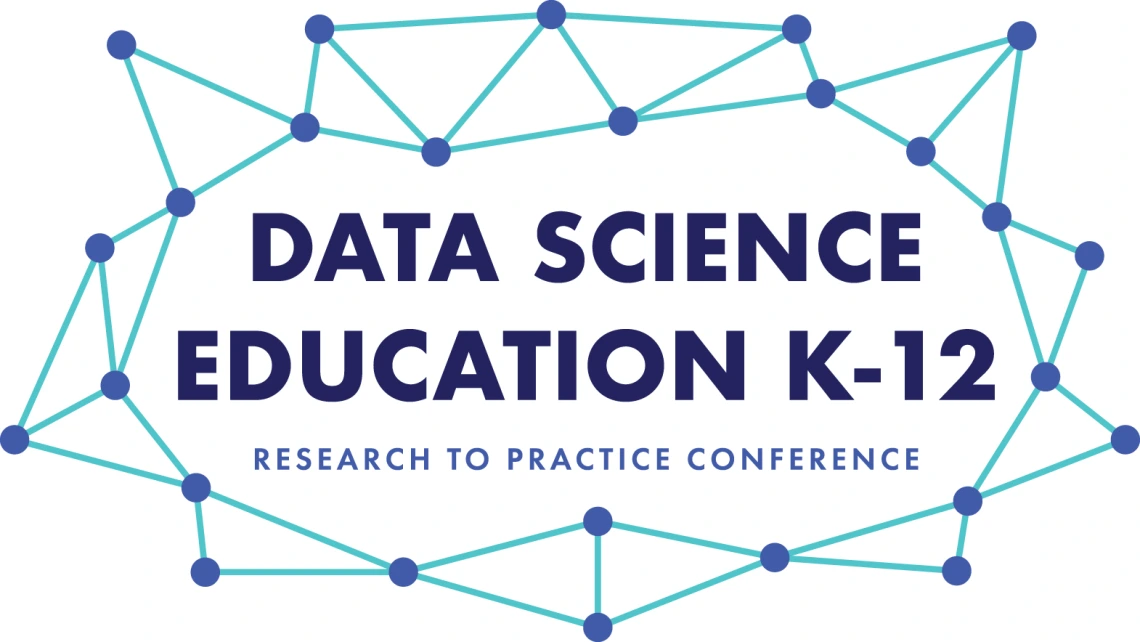for educators, researchers, curriculum developers, and school leaders to exchange ideas and co-create the future of data science education in K-12

When
Where
About the Conference
We are pleased to announce the creation of the Data Science Education K-12: Research to Practice Conference. Through collaborative sessions, innovative formats, and a supportive community, this inaugural conference will offer a dynamic atmosphere for educators, researchers, curriculum developers, and school leaders to exchange ideas and co-create the future of data science education in K-12.
Our call for proposals is now closed. Decisions will be announced at the end of October.
Why Join Us?
Over the last decade, the community of practitioners, researchers, and policymakers interested in K-12 data science and data literacy has grown exponentially.
Despite this, there are few spaces for interdisciplinary collaboration and thought exchange specifically on the topic of data science education.
Data literacy is literacy for civic engagement. It is a modern way to teach core school subjects and is the future of work. In the era of AI, data is both the fuel of the information economy and of daily life. Data literacy is a fundamental practice that every student should have the opportunity to learn before high school graduation.
Data science education is an ever-expanding field, and this is the community making it happen.
This Year’s Theme
The theme of the inaugural Data Science Education K-12: Research to Practice Conference is Addressing the Human Dimensions of Data.
Stories told with data are neither neutral nor objective. Every piece of data is processed in some way by humans, and every story told with data is written by and for humans. The practices involved in the creation, manipulation, interpretation, and communication of data are shaped by personal, cultural and political beliefs, and mediated by experiences, tools, and practices. Working with data means learning not to accept information at face value but to interrogate data’s origins and implications and the intent and validity of claims made with data. The act of teaching about data, data science, or AI is also a human endeavor and always will be. As a community, we are discovering things that work and those that don’t. Therefore, data science education should not merely be about numbers and algorithms, but also where they come from, grounded in a humanistic stance towards data.
Keynote Speaker: Dr. Talitha Washington, PhD, DSc
Empowering Humans Through Data, AI, and Technology
The rapidly evolving landscape of data, artificial intelligence, and technology may feel impersonal and distant from the human experience. However, when used to augment and extend human capabilities, these can be necessary tools to extend the frontiers of knowledge. Dr. Washington will share insights on stewarding educational experiences so that our students will navigate the future workforce responsibly.
Dr. Talitha Washington is the Director of the Atlanta University Center (AUC) Data Science Initiative; a tenured professor of mathematics at Clark Atlanta University; and an affiliate faculty at Morehouse College, Morehouse School of Medicine, and Spelman College. She is the lead principal investigator of the National Data Science Alliance, funded by the National Science Foundation (NSF). Dr. Washington is the President of the Association for Women in Mathematics (AWM) and was, most recently, a Program Director at the NSF. Her research interests include applied mathematics, dynamical systems, nonstandard finite difference schemes, data science, artificial intelligence, and education.
Dr. Washington completed her undergraduate studies in mathematics at Spelman College and studied abroad at the Universidad Autónoma de Guadalajara in Mexico. She earned her master's and doctoral degrees in mathematics from the University of Connecticut. She received an honorary doctorate in science from the University of Connecticut. She is a Fellow of the AWM, the American Mathematical Society (AMS), and the American Association for the Advancement of Science (AAAS).

